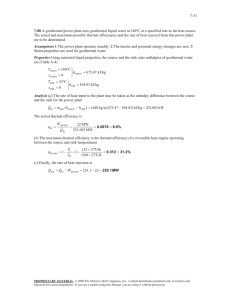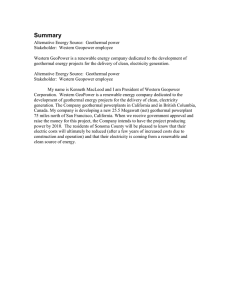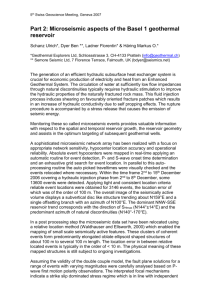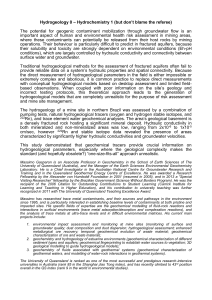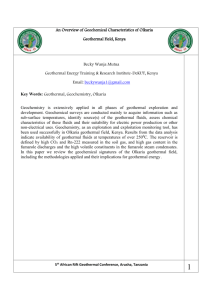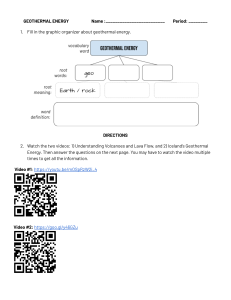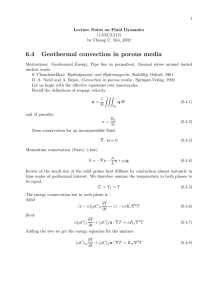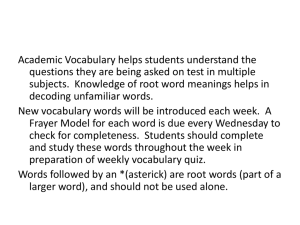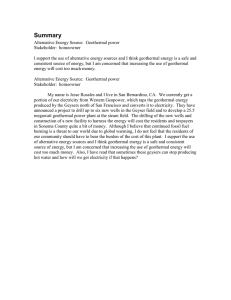Abstract Thesis: Effects of Ground-Couples Heat Pumps on Hydrogeologic Systems:... University Student: Marsha Elizabeth Dunn
advertisement
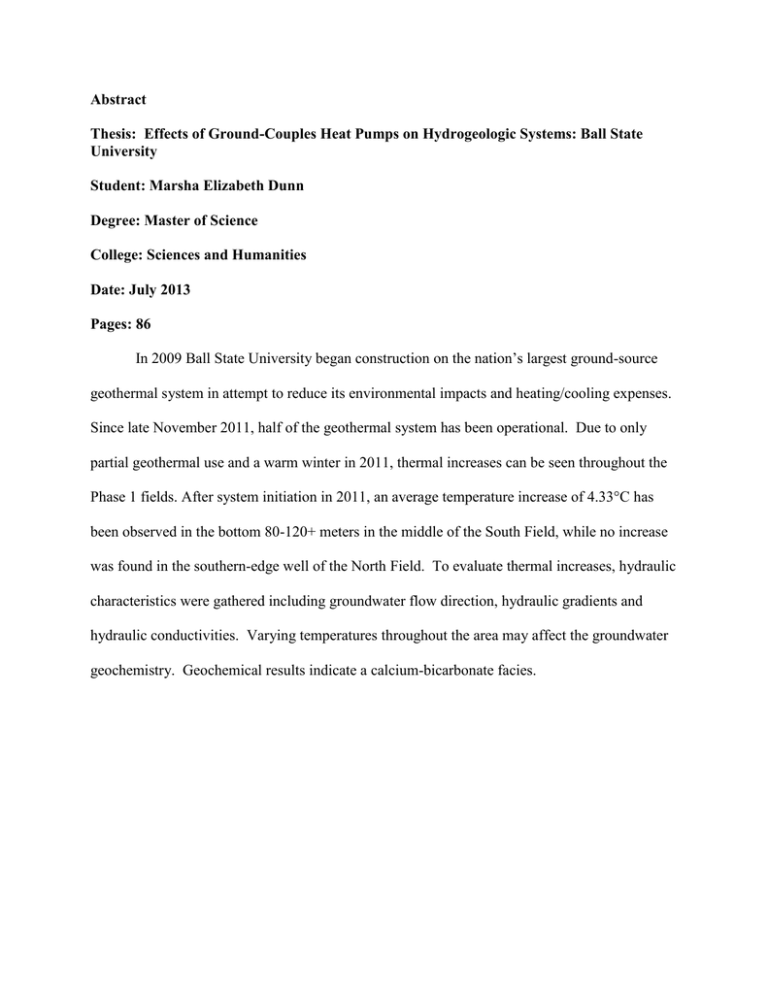
Abstract Thesis: Effects of Ground-Couples Heat Pumps on Hydrogeologic Systems: Ball State University Student: Marsha Elizabeth Dunn Degree: Master of Science College: Sciences and Humanities Date: July 2013 Pages: 86 In 2009 Ball State University began construction on the nation’s largest ground-source geothermal system in attempt to reduce its environmental impacts and heating/cooling expenses. Since late November 2011, half of the geothermal system has been operational. Due to only partial geothermal use and a warm winter in 2011, thermal increases can be seen throughout the Phase 1 fields. After system initiation in 2011, an average temperature increase of 4.33°C has been observed in the bottom 80-120+ meters in the middle of the South Field, while no increase was found in the southern-edge well of the North Field. To evaluate thermal increases, hydraulic characteristics were gathered including groundwater flow direction, hydraulic gradients and hydraulic conductivities. Varying temperatures throughout the area may affect the groundwater geochemistry. Geochemical results indicate a calcium-bicarbonate facies.

